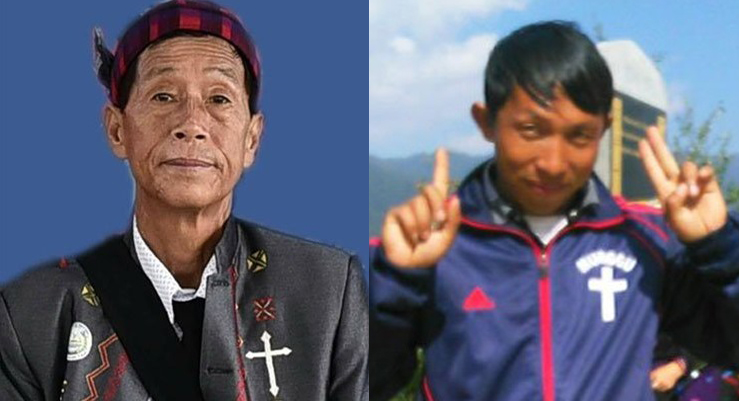Human rights organizations have expressed alarm over the disappearances of two Baptist pastors in Myanmar who may have been detained for their role in showing journalists a Catholic church allegedly damaged by government airstrikes targeting ethnic Kachin rebels in the country historically known as Burma.

Pastor Dumdaw Nawng Lat, 65, and his nephew Langjaw Gam Seng, 35, an assistant pastor, were last seen Dec. 24.
Pastor Dumdaw Nawng Lat, 65, and his nephew Langjaw Gam Seng, 35, an assistant pastor, were last seen Dec. 24 after being summoned to an army base in northeastern Burma supposedly to assist with the release of civilians detained there.
On Jan. 3, representatives of the Kachin Baptist Convention and family members filed a missing-persons report and say the government and the military have ignored their pleas to help find the two men.
“We have sent letters to the president’s and the commander-in-chief’s offices about the disappearance of our two pastors and we have not received anything from them yet,” said Samson Hkalam, general secretary of the Kachin Baptist Convention, quoted by the Associated Press. Samson said local police also failed to respond to inquiries by the two men’s families.
Human rights groups believe the disappearance is connected to the two men’s role in helping journalists document the destruction of civilian structures in Mong Ko in the Northern Shan State bordering China, Laos and Thailand.
The government has denied detaining the two men, claiming ground reports indicate they were taken by the Kachin Independence Army, ethnic rebel forces at war with Burma’s military junta since a 17-year cease-fire collapsed in 2011.
Human Rights Watch, Fortify Rights and Amnesty International all issued statements seeking information about their whereabouts.
“The disappearances raise grave concerns for the safety of the two men and witnesses to the incident,” Human Rights Watch and Fortify Rights said in a joint statement Jan.17. “The Burmese government and military should immediately address these issues and allow the visiting United Nations human rights expert to visit the area.”
Amnesty International issued a separate call urging people to write to Myanmar authorities to order an immediate investigation into the men’s disappearances and release them if they are in custody.
“The apparent enforced disappearance of these two Christian leaders has created a climate of fear and terror in Northern Shan State,” said Matthew Smith, chief executive officer of Fortify Rights, a nonprofit human-rights organization based in Southeast Asia.
Phil Robertson, deputy Asia director of Human Rights Watch, a nonprofit NGO established in 1978, said the nature of the two men’s disappearance “means the military has some serious questions to answer.”
“This is a crucial case for Aung San Suu Kyi and other government leaders to demand cooperation from the army, which has continued to resist civilian authority,” Robertson said.
Suu Kyi – the 1991 Nobel Peace Prize winner who once spent 15 years under house arrest by the government — was elected state counsellor of Myanmar, a position similar to prime minister, in 2015.
Burmese Baptists go back more than 200 years, with the arrival of American missionaries Adoniram Judson and Ann Hasseltine Judson in 1813. In recent decades that history has come full circle for Baptists in U.S. cities receiving refugees from Myanmar’s long-running civil war.
American Baptist Home Mission Societies appointed two missionaries to serve Burmese refugees in the U.S. in 2013. A delegation of the Kachin Baptist Convention led by Samson visited the headquarters of American Baptist Churches USA in 2015.
Central Baptist Theological Seminary, a school in Shawnee, Kan., connected to both the ABC/USA and the Cooperative Baptist Fellowship, offers a doctor of ministry program in Burma in collaboration with the Myanmar Institute of Theology and sponsors cultural exchange visits for students and faculty.
